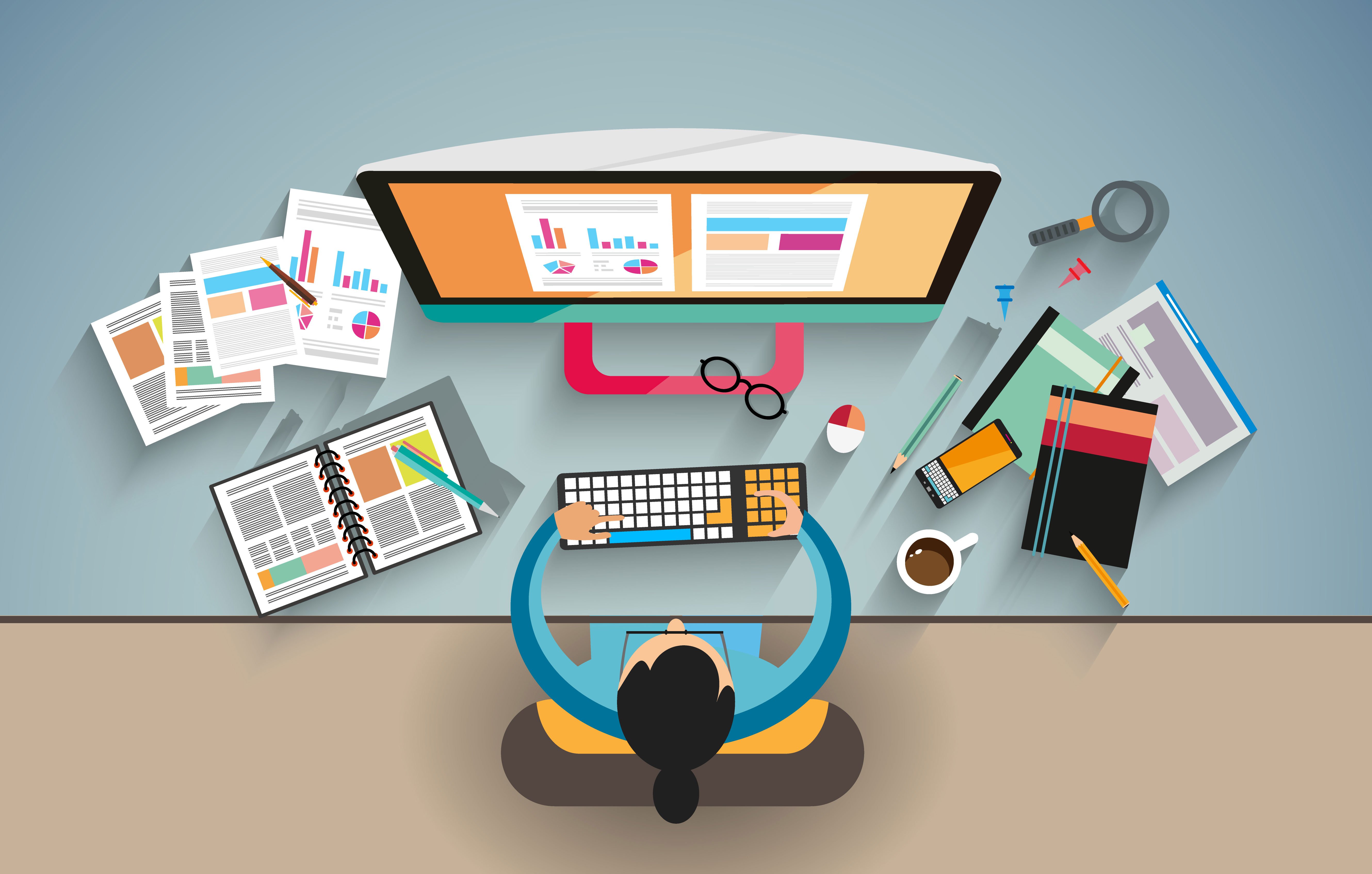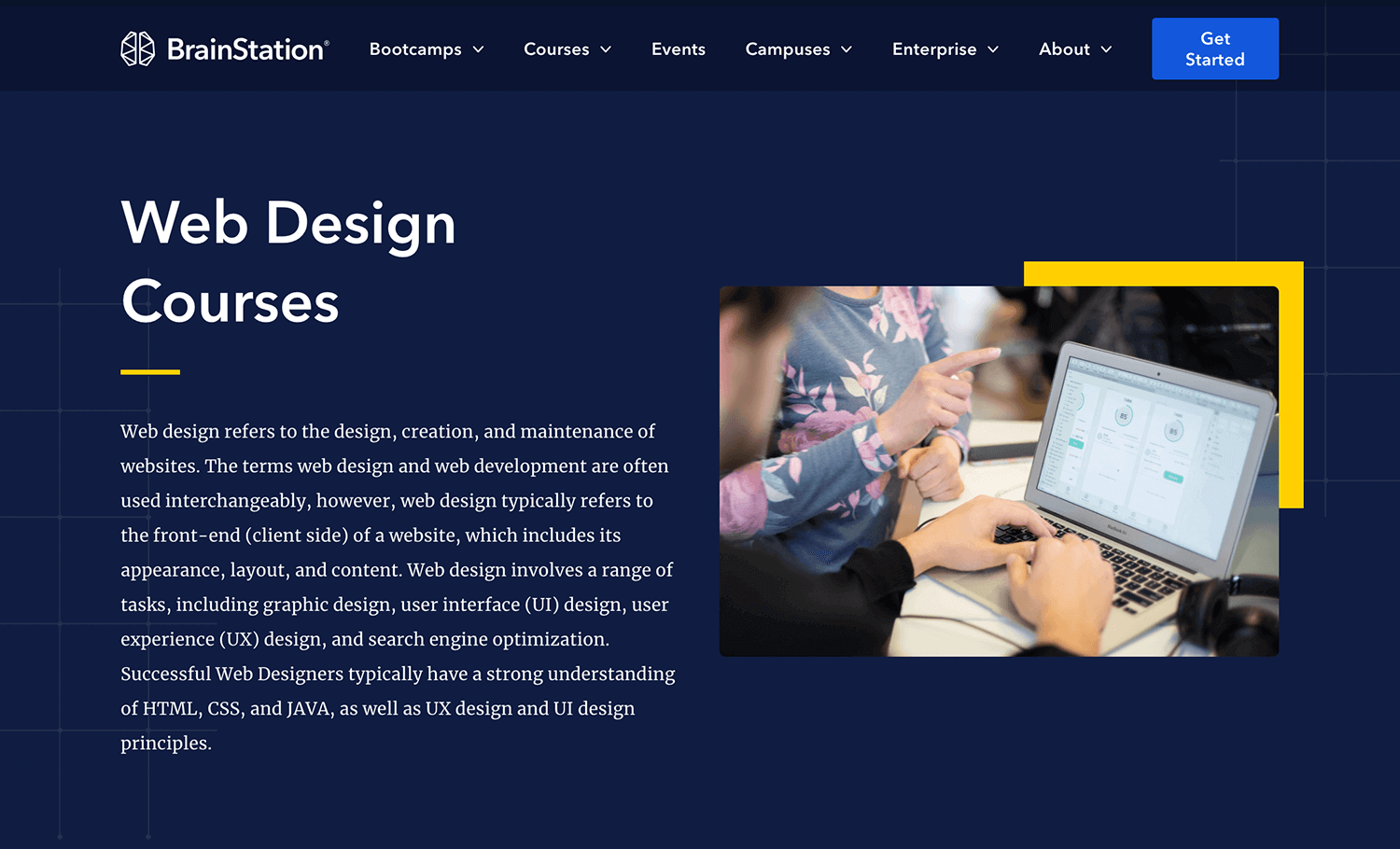Aligned Position Web Design: Transform Your Online Presence with Expert Web Design Services
Aligned Position Web Design: Transform Your Online Presence with Expert Web Design Services
Blog Article
The Very Best Kinds Of Web Design to Enhance User Experience and Interaction
In the ever-evolving landscape of digital interaction, the effectiveness of Web design considerably influences user experience and engagement. Numerous design techniques, such as minimal, receptive, and interactive designs, each deal one-of-a-kind benefits that can provide to diverse customer demands. Recognizing which sorts of website design best offer these purposes can be pivotal for companies aiming to improve consumer fulfillment and retention. However, the question stays: which layout aspects really reverberate with individuals and foster significant interaction? The exploration of these principles exposes important insights that might redefine your method to Web style.
Minimalist Website Design
As electronic landscapes become significantly chaotic, minimalist Web layout has emerged as a powerful technique to boosting individual experience. This design philosophy focuses on simplicity, concentrating on important elements while removing unneeded interruptions. By using ample white space, uncomplicated navigating, and a minimal color palette, minimalist design fosters clarity and guides individual attention to essential web content.
The core principle of minimal Web design is to produce a smooth interaction for customers. By decreasing cognitive load, users can swiftly realize info without really feeling bewildered. This straight method not only enhances use however also motivates interaction, as site visitors are more most likely to check out a website that is easy and aesthetically enticing to navigate.
Furthermore, minimal style often stresses typography and imagery, making use of these elements purposefully to convey messages successfully. This emphasis on essential parts can enhance brand name identification and create a remarkable customer experience. Fundamentally, minimalist website design is not just a trend; it is a thoughtful method that recognizes the value of user-centered style. By removing extraneous aspects, developers can develop an extra interesting, reliable, and pleasurable Web experience for all users.
Receptive Web Style
In today's varied digital environment, receptive website design has actually become essential for creating a seamless user experience throughout a wide variety of tools. As individuals access sites on smartphones, laptops, tablet computers, and desktop computers, the ability of a website to adjust its design and content to various screen dimensions and resolutions is important.
Receptive website design uses flexible grids, pictures, and CSS media questions to ensure that Web content is presented ideally, regardless of the tool utilized. This approach not just boosts the visual charm of a website yet additionally substantially enhances functionality. Customers are most likely to involve with a website that supplies a consistent experience, as it gets rid of the aggravation of needing to zoom in or scroll exceedingly.
By embracing receptive style, organizations can boost their exposure and get to a wider target market. In summary, receptive Web layout is a basic practice that boosts individual experience, interaction, and general contentment.
Interactive Web Design
Responsive Web design prepares for enhancing individual experience, however interactive Web layout takes this an action even more by engaging users in a more vibrant method - Aligned Position Web Design. By including aspects such as computer animations, clickable prototypes, and real-time feedback, interactive Web design astounds users, attracting them right into a richer browsing experience
This technique not just fosters engagement yet also encourages users to discover content proactively as weblink opposed to passively eating it. Methods such as gamification, where users gain benefits for finishing tasks, can significantly enhance the time invested in a site and improve overall satisfaction. Additionally, interactive functions can simplify complex info, making it much more pleasurable and digestible.

Integrating interactive layout elements can additionally cause greater conversion rates, as individuals are most likely to engage with a site that proactively entails them. Aligned Position Web Design. Eventually, interactive website design transforms customer experiences right into memorable journeys, making certain that visitors return time after time
Flat Style
Defined by its minimalistic strategy, level layout emphasizes simpleness and capability, removing away unneeded components and concentrating on important attributes. This layout ideology focuses on use, making certain that customers can browse interfaces with simplicity and performance. By using a tidy visual, level style eliminates the clutter frequently found in more ornate designs, therefore boosting customer emphasis on material and functionality.
The hallmark of level style depends on its use bold colors, simple typography, and geometric shapes. These elements add to a visually appealing user interface that is both approachable and modern-day. Furthermore, flat layout cultivates a feeling of quality, enabling individuals to discern essential activities and info without disturbance.
In addition, flat design is specifically efficient in responsive website design, as its simplicity equates well across numerous devices and display sizes. The lack of detailed structures and slopes lessens loading times, which is critical for preserving customer interaction. As digital landscapes proceed to evolve, level design stays a relevant option for creating straightforward sites that boost overall experience. By concentrating on important attributes, flat style not just satisfies customer needs however additionally motivates smooth interaction, making it a crucial part of effective Web layout techniques.
Adaptive Web Style
Flexible website design customizes the user experience by producing numerous taken care of formats customized to various display dimensions and tools. Unlike receptive style, which fluidly readjusts a solitary format, flexible layout uses distinctive layouts for certain breakpoints, ensuring optimum discussion on numerous systems. This strategy permits designers to concentrate on the distinct qualities of each gadget, enhancing usability by delivering exactly what individuals need based on their context.
Among the key benefits of adaptive website design is its capability to enhance load times and performance. By offering customized material and photos that fit the individual's have a peek at these guys tool, internet sites can lessen data usage and boost loading speeds. This is especially helpful for individuals with slower connections or limited information plans.

In addition, adaptive style facilitates a much more consistent and controlled branding experience. Given that designers produce several formats, they can ensure that the aesthetic elements line up with the brand name's identification across different platforms - Aligned Position Web Design. This leads to a cohesive customer experience, boosting engagement and promoting individual retention
Verdict
Minimalist design fosters quality and see this page emphasis, while responsive design ensures adaptability throughout various tools, advertising availability. Collectively, these design comes close to add to the creation of straightforward atmospheres that not only improve contentment yet likewise drive higher conversion prices, emphasizing their vital relevance in contemporary Web layout approaches.

Minimalist design promotes clearness and emphasis, while responsive style makes certain flexibility throughout numerous tools, advertising ease of access. Collectively, these design approaches contribute to the creation of user-friendly environments that not only improve fulfillment however likewise drive greater conversion prices, highlighting their crucial significance in contemporary Web layout techniques.
Report this page